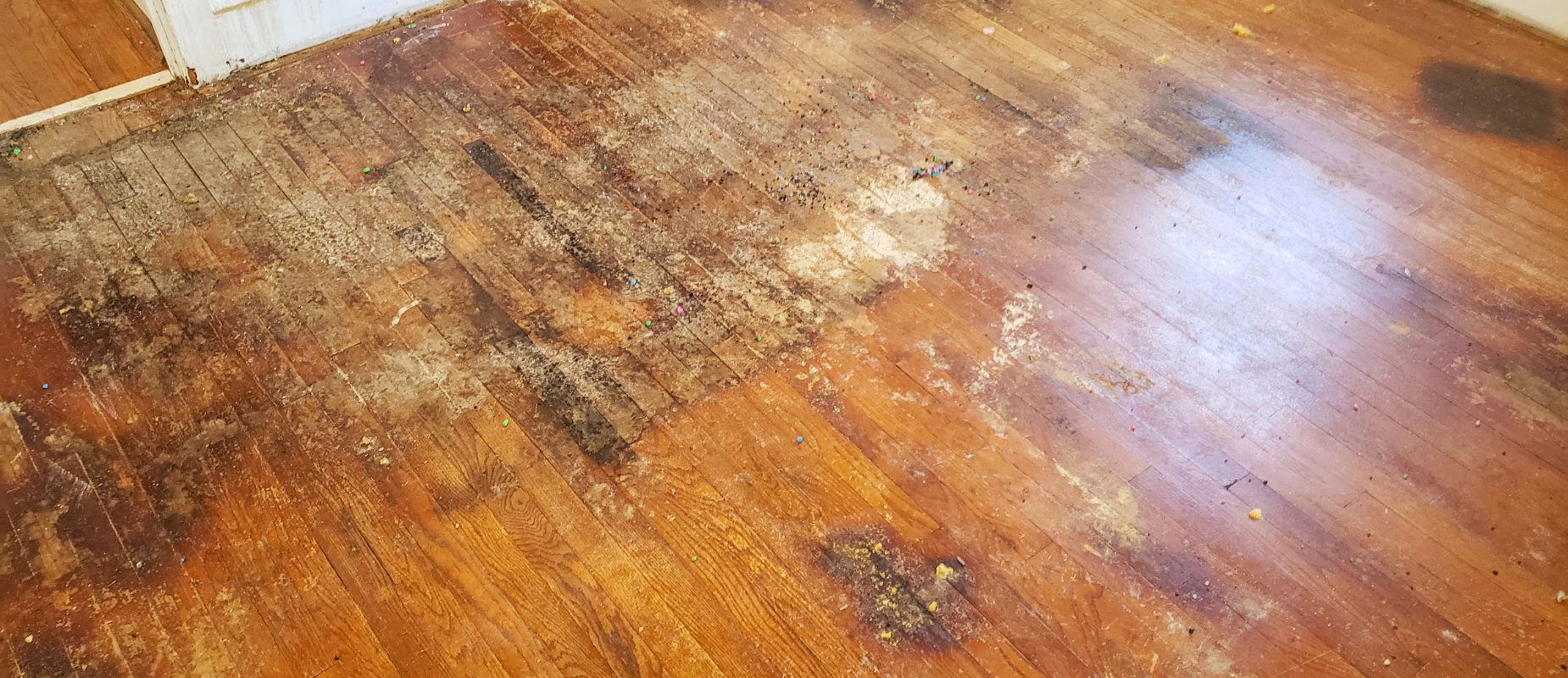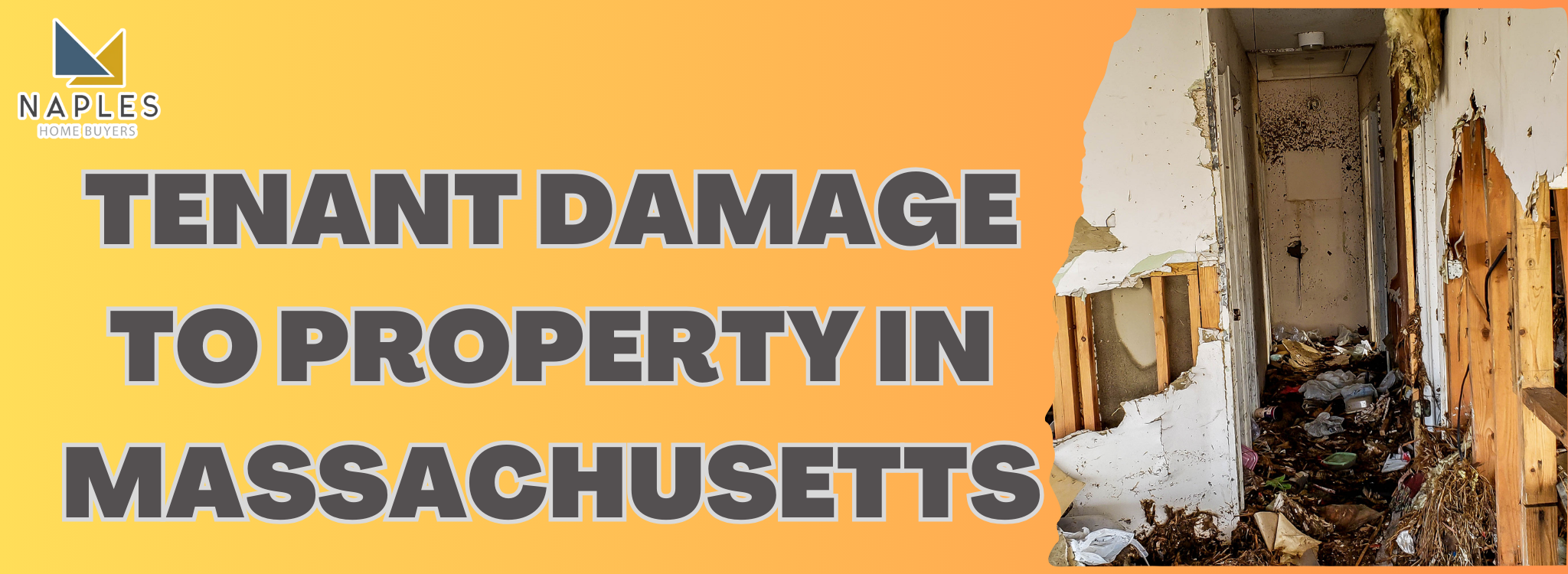
Legal Framework for Addressing Tenant Damage
What Legal Rights Do Landlords Have?
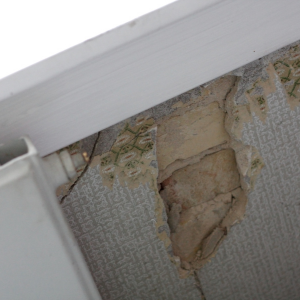
As a landlord, knowing what you can do legally is essential. In Massachusetts, landlords have rights when tenant problems or property damage occur. Here’s what you should know:
- Landlord Tenant Disputes: These often happen over lease rules or property conditions.
- Massachusetts Landlord Rights: You can take repair costs out of the security deposit if the damage exceeds normal wear and tear.
- Property Damage Liability: Tenants must fix what they break. If necessary, landlords can sue for repair money.
- Security Deposit Deductions: Keep records of damages to explain any money taken from the security deposit.
- Legal Action for Tenant Damage: If you can’t fix problems by talking, you might need to go to court, especially for significant damages.
- Property Damage Eviction: In severe cases, damage that breaks the lease might lead to eviction.
Understanding Massachusetts Rental Property Laws
Knowing Massachusetts rental laws helps both landlords and tenants. Here’s how these laws help keep things fair:
- Massachusetts Rental Laws: These laws say who must do what, like keeping the property safe and treating everyone fairly.
- Massachusetts Housing Court: This court deals with problems like unpaid rent or property damage.
- Rental Property Maintenance: Landlords must keep properties safe and fix broken things.
- Lease Agreement Damage Clauses: Leases should clearly say what tenants must do to keep the place nice.
- Tenant Compensation Claims: Tenants can ask for money if a landlord’s mistake damages their stuff.
- Massachusetts Tenant Rights: Tenants should live in safe and well-kept homes.
How to Document Damage for Legal Purposes
Keeping track of damage is essential to handle things with the law. Here’s how to do it right:
- Property Damage Documentation: Write down and take pictures of all damages as proof.
- Tenant Repair Notice: Tell tenants in writing about what you found and what needs fixing.
- Tenant Move-Out Inspection: Check the place carefully when a tenant leaves to see what’s different.
- Damage Assessment Rental: Look at how bad the damage is and write a full report.
- Damage Cost Estimates: Get prices from repair workers to know how much fixing will cost.
- Repair Cost Recovery: Use your proofs to get repair money back from the deposit or court.
- Property Damage Protection: Consider insurance covering damages to protect against problems later.
Knowing these things can help landlords manage their properties better and deal with tenant issues effectively. For more information, check out the resources offered by Naples Home Buyers.
Responsibilities and Obligations of Tenants
What Are Tenants Required to Maintain?
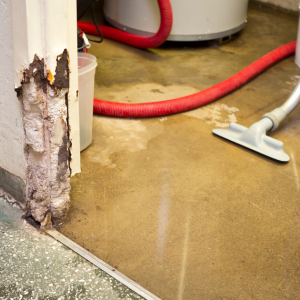
As a tenant, you have some important jobs to do. In Massachusetts, rental laws say tenants must keep their homes clean and safe. Minor repairs are essential, such as changing light bulbs or unclogging drains. You need to prevent damage and tell your landlord about big problems immediately. Check smoke detectors often and make sure appliances are working well. These are the things tenants should do.
How Can Tenants Avoid Liability for Damages?
Consider getting tenant liability insurance to protect yourself from paying for damages. Coverage like this helps cover costs if accidental damage happens. Look at your lease agreement to find any rules about damages. Following these rules enables you to avoid appearing careless. Keep a checklist of what you need to do as a tenant. These steps will help you know your duties and maintain the property’s safety.
What Steps Should Tenants Take After Causing Damage?
If you accidentally cause damage, here’s what you should do:
- Notify Your Landlord: Quickly send a repair notice to your landlord.
- Document the Damage: Take pictures or videos for proof.
- Assess the Damage: Find out how bad the damage is.
- Discuss Repairs: Talk with your landlord about how to fix it and who will pay.
- File Claims: If needed, claim with your money insurance back.
By knowing what you need to do and acting quickly, you can maintain a good relationship with your landlord and ensure that your home stays nice. If you have more questions, you can ask Naples Home Buyers for help.
Effective Strategies for Damage Prevention
How Can Landlords Minimize Tenant-Induced Damage?
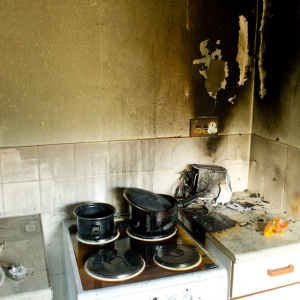
Keeping rental properties in good shape is essential for landlords. Here are ways to reduce damage caused by tenants:
- Tenant Damage Prevention: Check potential tenants carefully by looking at references and doing background checks. These actions help you find responsible renters.
- Rental Property Maintenance: Regular maintenance is key. Fix minor issues before they get bigger to save time and money.
- Lease Agreement Clauses: The lease should contain clear rules about tenant responsibilities and damage prevention. Setting clear expectations from the start helps establish a mutual understanding.
- Landlord Responsibilities: Inspect the property before and after tenants move in. Take pictures or videos to document the property’s condition.
- Damage Control Strategies: Ensure tenants know how to report damages. Respond quickly to repair requests to prevent further damage.
- Property Management Practices: Talk often with tenants. Please encourage them to report issues early.
Knowing Massachusetts rental laws can help manage tenant-induced damages effectively.
Practical Tips for Maintaining Rental Property
Taking care of your rental property matters. Here are practical tips to help with maintenance:
- Regular Maintenance: Schedule regular checks of systems like plumbing and HVAC. Add seasonal check-ups to the routine.
- Property Inspection Checklist: Create a checklist for property inspections to ensure you notice everything.
- Preventive Measures: Take preventive measures, such as smoke detectors and good ventilation, to avoid costly repairs later.
- Landlord Maintenance Tips: Keep a list of reliable contractors for emergencies. Creating a checklist for property inspections saves hassle when quick repairs are needed.
- Property Upkeep: Keep communication open with tenants so they feel comfortable reporting issues. Quick action can stop minor problems from growing.
Following Massachusetts property maintenance guidelines helps ensure legal compliance and keeps tenants happy.
Utilizing Lease Agreements for Damage Control
Lease agreements are valuable tools for managing property damage risks. Here’s how to use them well:
- Lease Agreement Terms: Clearly define tenant obligations for property care. Clarifying roles and responsibilities at the start ensures everyone understands their duties.
- Damage Liability Clauses: Include clauses that say who is responsible for different types of damage. Clarifying this can prevent disputes over liability.
- Security Deposit Deductions: Security deposits will cover damages; explain this process to renters. Transparency builds trust.
- Tenant Obligations: List tasks tenants are responsible for, like yard work or changing light bulbs.
- Lease Enforcement: Consistently enforce lease terms. Fair but firm enforcement creates respect between tenants and landlords.
- Rental Contract Conditions: Ensure all conditions follow Massachusetts rental agreements to avoid legal issues.
By using lease agreements well, landlords can protect their properties and lower the risk of tenant-related damages.
Resolving Disputes Over Property Damage
Renting a home in Massachusetts can sometimes lead to issues over property damage. Fixing these problems quickly and somewhat is key to keeping a good tenant-landlord relationship. This guide will help you understand the resolution process and your options.
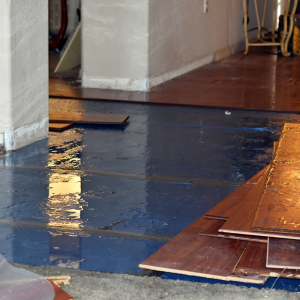
What Processes Are Involved in Damage Dispute Resolution?
Usually, fixing property damage disputes involves several steps. You should know about Massachusetts rental laws, which explain how to handle these issues. It’s essential to have proof of the damage. Take photos, note dates, and keep receipts.
Security deposit deductions can often cause arguments. Landlords might use this deposit to fix damages, but tenants have rights, too. Good communication can stop misunderstandings. If there are still disagreements, tenant and landlord mediation can help. Going to court is the last option if nothing else works.
Options Available for Tenant-Landlord Mediation
Mediation helps fix disputes without going to court. In Massachusetts, housing courts and mediation services offer tenant-landlord mediation. These services help both parties discuss issues like tenant repair duties and property damage responsibility in a neutral place.
Mediation can clear up misunderstandings and find agreeable solutions. Both tenants and landlords benefit from this since it saves time and money compared to court.
How to Negotiate Damage Reparations Without Litigation
Negotiation is essential to avoid costly legal battles. Start with a full damage assessment. Both parties should clearly state their expectations and concerns. Early discussion about tenant compensation claims and repair cost recovery can help prevent more conflict.
Good negotiation means knowing each party’s tasks, like tenant repair obligations and property damage liability. Think about mediation if talks don’t go well. Getting legal advice can also help you know your rights and options.
By following these steps, you can solve disputes peacefully, ensuring your rental experience goes smoothly.
FAQs:
What should tenants in Massachusetts know about property damage?
Tenants in Massachusetts should know their rights and duties regarding property damage. They need proof if they claim damages beyond normal wear and tear. Keeping records and photos helps settle arguments with landlords.
How can landlords in Massachusetts fix issues with tenant damage?
Landlords should take photos or videos of the property before a tenant moves in. Keeping receipts and repair estimates helps show the extent of any damage later, which can help resolve these problems.
What is the difference between normal wear and tear and damage?
Normal wear and tear include worn carpets or faded paint. Damage includes holes in walls or stains on carpets. Knowing the difference helps both tenants and landlords manage their duties better.
How should security deposits be handled for property damage in Massachusetts?
Security deposits should cover damages beyond normal wear and tear. Landlords must give tenants an itemized list of deductions with receipts or proof of repair costs. Tenants should keep evidence of what the property looked like before moving out.
What can tenants do if they are unfairly charged for property damage?
Tenants should gather evidence, like photos and videos taken before moving out. They can file a complaint with the local housing authority or take legal action. Knowing tenant rights is essential in these situations.
What role do pets play in property damage checks in Massachusetts?
Pets can cause damage like scratches or stains. Tenants with pets should keep the property clean and fix any issues quickly. Landlords might ask for extra deposits or cleaning fees for pet damages.
How does knowing property ownership laws help Massachusetts landlords and tenants?
Knowing property ownership laws helps landlords and tenants understand their duties and financial matters. It ensures they follow the rules and keep the relationship smooth, avoiding disputes.
Where can tenants and landlords find more info about their duties in Massachusetts?
Many resources, such as local housing authorities, legal aid groups, and online guides, are available. They offer tenant and landlord rights information and help with disputes or questions.
Key Insights
- In Massachusetts, if tenants want to take action because their landlord did not keep an agreement, they must show proof.
- We provide simple tips on handling tenant damage and keeping properties in their original condition for future sale.
- When tenants move out or leave the property, landlords need proper documentation and registered items to make any financial claims.
- Investors and landlords should know about Massachusetts tenants’ rights and responsibilities in following state rules.
- Using video, pictures, and copies of important documents helps in disputes over the damage done by tenants.
- Tenants should return personal property in its original condition. If not, landlords might take repair costs from deposits.
- Learning Massachusetts real estate rules is important for people in real estate investments and managing property.
- A good business plan with ideas for handling late payments and mortgage deductions can help property owners succeed.
- Joining our group offers shared resources and helps you follow industry standards and get the needed business licenses.
- For more details or to join our group of investors, visit our site and check out our available resources.
These details apply to the entire state of Massachusetts, including cities like Springfield, Amherst, Greenfield, Huntington, and Hadley, as well as their surrounding areas. If you require extra assistance or have particular inquiries, please contact us at (413) 331-6060. Please see our website, Naples Home Buyers, for more information and complete descriptions of our services.
Sell Your House in Massachusetts For Cash 💰
We buy houses in Massachusetts In ANY CONDITION! We pay CASH and you will not pay any commissions, agents, or fees. Enter your address to get your cash offer in 24 hours or less!
Resources To Help You Sell A House in Massachusetts
Give Us A Call At (413) 331-6060
If you require additional assistance or have specific questions, please do not hesitate to Contact Us at (413) 331-6060. You Can also visit our Homepage at Naples Home Buyers for more information and detailed descriptions of our services.

